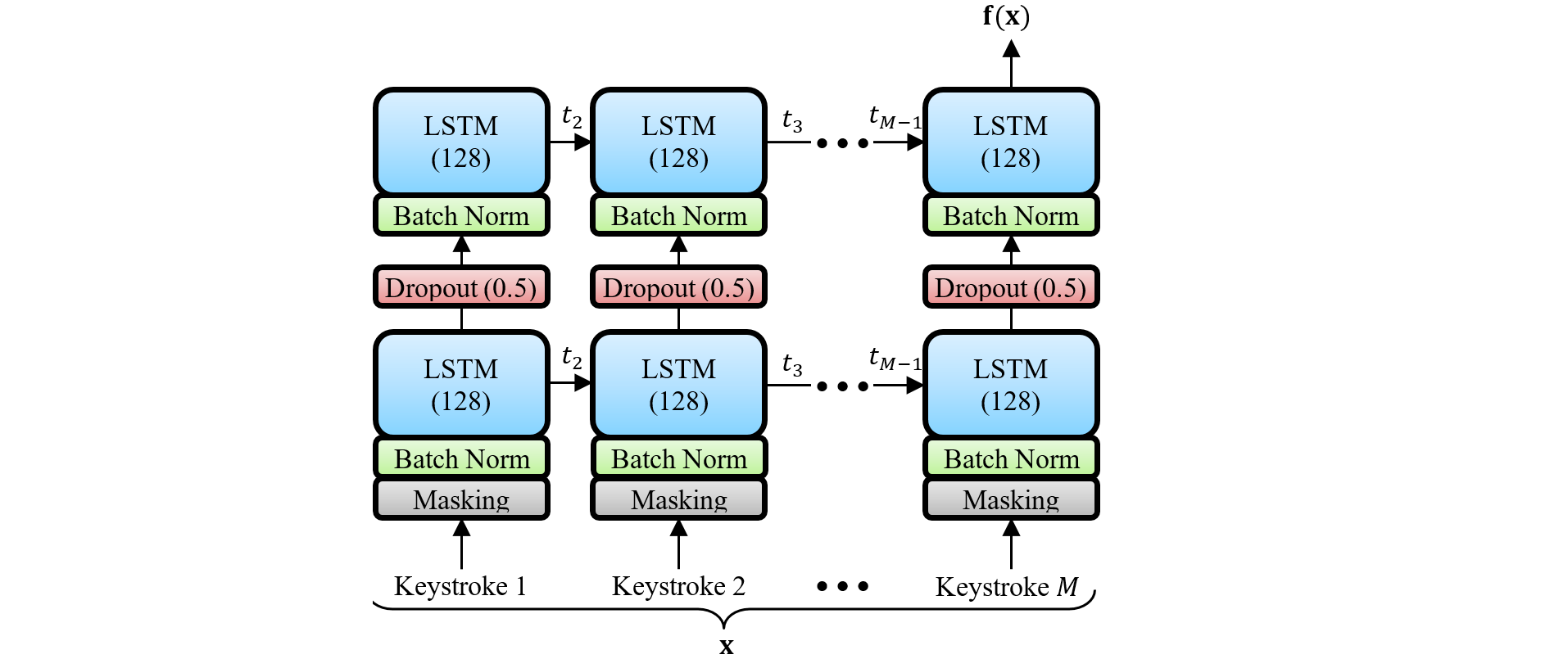TypeNet: Deep Learning Keystroke Biometrics
We study the performance of Long Short-Term Memory networks for keystroke biometric authentication at large scale in free-text scenarios. For this we explore the performance of Long Short-Term Memory (LSTMs) networks trained with a moderate number of keystrokes per identity and evaluated under different scenarios including: i) three learning approaches depending on the loss function (softmax, contrastive, and triplet loss); ii) different number of training samples and lengths of keystroke sequences; iii) four databases based on two device types (physical vs touchscreen keyboard); and iv) comparison with existing approaches based on both traditional statistical methods and deep learning architectures. Our approach called TypeNet achieves state-of-the-art keystroke biometric authentication performance with an Equal Error Rate of 2.2% and 9.2% for physical and touchscreen keyboards, respectively, significantly outperforming previous approaches. Our experiments demonstrate a moderate increase in error with up to 100,000 subjects, demonstrating the potential of TypeNet to operate at an Internet scale. To the best of our knowledge, the databases used in this work are the largest existing free-text keystroke databases available for research with more than 136 million keystrokes from 168,000 subjects in physical keyboards, and 60,000 subjects with more than 63 million keystrokes acquired on mobile touchscreens.
PDF Abstract